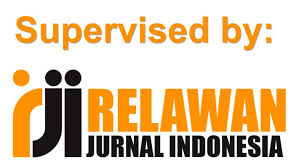The History Of Islamization In Indonesia: Its Dynamics And Development
DOI:
https://doi.org/10.37092/el-ghiroh.v23i1.1092Keywords:
History, Islamic Development, IndonesiaAbstract
The introduction of Islam to Indonesia is a complex historical event that occurred over an extended period, beginning in the 7th century and reaching its peak from the 13th to the 16th century. There are five theories regarding the entry of Islam into the archipelago, primarily based on the origin of its bearers: the Arab theory, the Chinese theory, the Persian theory, the Indian theory, and the Turkish theory. This research employs a literature study with a qualitative approach. The strategies for spreading Islam in the archipelago were carried out through trade routes, preaching (dawah), marriage, education, and cultural Islamization. The key figures who disseminated Islam in the archipelago were scholars and kings/sultans. Islamization in the archipelago is characterized by its unique features, namely a relatively peaceful and gradual spread, which differs from the pattern of Islamic dissemination in some other regions of the world. Islam was introduced through various channels, especially trade, marriage, and preaching by Muslim traders, scholars, and Sufis. Ports and coastal cities became the initial points of Islamic spread, eventually reaching inland areas. The Islamization process in Indonesia is also marked by intensive adaptation and acculturation with local cultures, resulting in a distinctive form of Islam unique to the archipelago. This accommodative approach allowed Islam to be widely accepted and to become an integral part of the Indonesian identity. The arrival of Islam not only transformed the religious landscape but also shaped new social, political, and cultural dynamics, which have had a profound and lasting influence on the formation of Indonesia's national identity.
Downloads
References
Akhmad Jazuli Afandi. (2023). Islam and Local Culture: The Acculturation Formed by Walisongo in Indonesia. Indonesian Journal of Humanities and Social Sciences, 4(1 SE-Articles), 103–124. https://doi.org/10.33367/ijhass.v4i1.4135
Al Qurtuby, S. (2020). The Rise Of Islamism And The Future Of Indonesian Islam. Journal of International Studies, 16(0 SE-Articles), 105–128. https://e-journal.uum.edu.my/index.php/jis/article/view/jis2020.16.7
Alaeddin Tekin. (2024). The Islamization Of The Malay Archipelago In Ottoman Manuscripts. Al-Shajarah: Journal of the International Institute of Islamic Thought and Civilization (ISTAC), 29(1), 193–206. https://doi.org/10.31436/shajarah.v29i1.1842
Arifianto, A. R. (2020). Rising Islamism and the Struggle for Islamic Authority in Post- Reformasi Indonesia. TRaNS: Trans -Regional and -National Studies of Southeast Asia, 8(1), 37–50. https://doi.org/10.1017/trn.2019.10
Asiah, S., Huda, M., Amrin, A., Kharisma, R., Rosyada, D., & Nata, A. (2022). The Dynamics of Islam in Indonesia in the Perspective of Education. Proceedings of the 4th International Colloquium on Interdisciplinary Islamic Studies in Conjunction with the 1st International Conference on Education, Science, Technology, Indonesian and Islamic Studies, ICIIS and ICESTIIS 2021, 20-21 October 2021, Jambi. https://doi.org/10.4108/eai.20-10-2021.2316321
Asni, F. (2019). The Development of Islam and Mazhab Al-Syafi’i during the Post-Arrival of Islam in the Malay Archipelago. International Journal of Academic Research in Business and Social Sciences, 9(3). https://doi.org/10.6007/IJARBSS/v9-i3/5789
Asroni, A. (2022). The History of Indonesian Islam (From the Early Period to Emergence of Islamic Kingdoms). LITERATUS, 4(1 SE-Humanities), 104–117. https://doi.org/10.37010/lit.v4i1.678
Azis, A., Amalina, S. N., & Azharotunnafi, A. (2021). Islamic Historical Studies: The Beginning of the Emergence of Islam and the Development of Islamic Culture in Southeast Asia. Riwayat: Educational Journal of History and Humanities, 4(2), 117–125. https://doi.org/10.24815/jr.v4i2.26599
Demir, M., & Barton, G. (2023). Indonesia’s Journey to Independence and the Evolution of Political Islam: A Historical Perspective BT - Islamist Populism in Turkey and Indonesia: A Comparative Analysis (M. Demir & G. Barton (eds.); pp. 59–80). Springer Nature Singapore. https://doi.org/10.1007/978-981-99-7980-6_4
Farkhani, F., Elviandri, E., Dimyati, K., Absori, A., & Zuhri, M. (2022). Converging Islamic and religious norms in Indonesia’s state life plurality. Indonesian Journal of Islam and Muslim Societies, 12(2), 421–446. https://doi.org/10.18326/ijims.v12i2.421-446
Fuadi, M. A., & Mahbub, M. (2023). Penyebaran Islam dalam Khazanah Pesantren: Analisis Kitab Ahla al-Mus?marah f? Hik?y?t al-Auliy?’ al-‘Asyrah. Al-Adabiya: Jurnal Kebudayaan Dan Keagamaan, 18(1), 33–56. https://doi.org/10.37680/adabiya.v18i1.2640
Hasyim, A. W. (2021). Demak Sultanate: The Fortress of Islamic Greatness in the Middle Ages Java Island. Buletin Al-Turas, 27(1), 1–16. https://doi.org/10.15408/bat.v27i1.16400
Hoesterey, J. (2022). Globalization and Islamic Indigenization in Southeast Asian Muslim Communities. ISLAM NUSANTARA:Journal for the Study of Islamic History and Culture, 3(2), 1–20. https://doi.org/10.47776/islamnusantara.v3i2.370
Imamuddin, M., Andryadi, A., & Zulmuqim, Z. (2020). Islamic Education In The Al-Qur’an and Sunnah (Study About the Meaning of Education and Implication for Educator). Journal Educative?: Journal of Educational Studies, 5(1), 70. https://doi.org/10.30983/educative.v5i1.3055
Isbah, M. F. (2020). Pesantren in the Changing Indonesian Context: History and Current Developments. QIJIS (Qudus International Journal of Islamic Studies), 8(1), 65. https://doi.org/10.21043/qijis.v8i1.5629
Kjellgren, B., & Richter, T. (2021). Education for a Sustainable Future: Strategies for Holistic Global Competence Development at Engineering Institutions. Sustainability, 13(20), 11184. https://doi.org/10.3390/su132011184
Lailatun, N., & Mawardi, K. (2023). Islamization Of The Archipelago: A Study Of The Arrival And Spread Of Islam In Indonesia And Malaysia. Al-Munqidz?: Jurnal Kajian Keislaman, 11(1 SE-Articles), 10–30. https://doi.org/10.52802/al-munqidz.v11i1.538
Nasution, F. (2020). Kedatangan dan Perkembangan Islam ke Indonesia. Mawa’izh: Jurnal Dakwah Dan Pengembangan Sosial Kemanusiaan, 11(1), 26–46. https://doi.org/10.32923/maw.v11i1.995
Pane, I. (2023). Peradaban Islam di Indonesia. Journal of Education and Culture, 3(1), 15–20. https://doi.org/10.58707/jec.v3i1.369
Purnomo, H. et al. (2024). Metode Penelitian Kuantitatif, Kualitatif dan R&D. CV. Saba Jaya Publisher.
Saragih, M. R. B. F., & Siregar, Y. D. (2023). The Islamization in the Malay Archipelago: a Study of Azyumardi Azra’s Thought. Yupa: Historical Studies Journal, 7(2 SE-Articles), 172–181. https://doi.org/10.30872/yupa.v7i2.2045
Thahir, L. S. (2021). Islam Of The Archipelago: Cosmopolitanism Of Islamic Civilization In Indonesia. Jurnal Ilmiah Islam Futura, 21(1), 23. https://doi.org/10.22373/jiif.v0i0.5794
Upal, M. A., & Cusack, C. M. (2021). Handbook of Islamic Sects and Movements. In Islamic Studies Review (Vol. 1, Issue 2). Brilll. https://doi.org/10.56529/isr.v1i2.87
Downloads
Published
How to Cite
Issue
Section
License
Copyright (c) 2025 Zainal Azman; Supriadi Supriadi

This work is licensed under a Creative Commons Attribution-NonCommercial-ShareAlike 4.0 International License.










